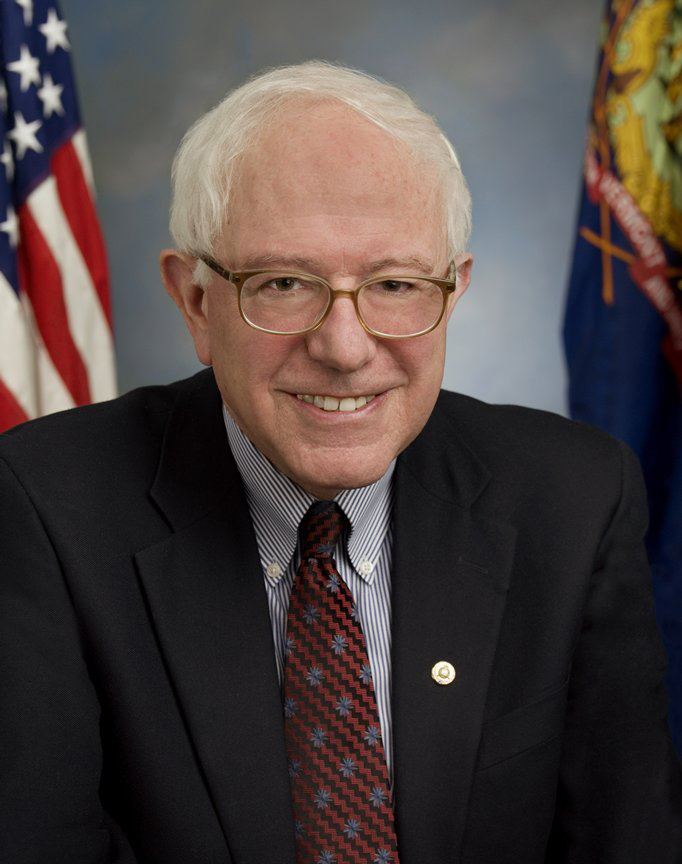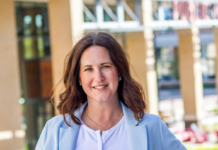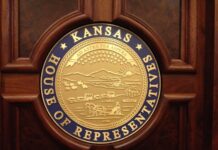A week after U.S. Sen. Bernie Sanders brought his political rock show to Kansas, Democratic congressional candidate Brent Welder is still awash in the afterglow of the support he’s receiving from the progressive icon.
Less than a week after Sanders and Democratic phenom Alexandria Ocasio-Cortez came to Kansas City, Kan., to campaign for Welder in the 3rd District race, the candidate’s Twitter feed was laced with postings celebrating the event.

Then on Thursday night, the Welder campaign sent out an email, proudly announcing that it had raised about $110,000 since Sanders and Ocasio-Cortez came to town a week ago.
“I think it had a tremendously positive impact and it came at exactly the right time,” said spokesman Shawn Borich. “For us in Kansas, it has been a tremendous benefit.”
But just how much an asset will it be come primary day?
The Sanders magic that has engendered so much enthusiasm on the progressive left isn’t rubbing off on other Democratic candidates he’s supported. Consider:
- Last year, Sanders attended a rally for former Democratic Congressman Tom Perriello of Virginia, who lost the Democratic gubernatorial primary against current Gov. Ralph Northam.
- Community organizer Greg Edwards finished third in a Democratic primary for a congressional seat in Pennsylvania even though Sanders attended a rally for him. Similarly to the 3rd District congressional race, Edwards was up against another progressive female candidate who had the support of EMILY’s List.
- Pete D’Alessandro, the point man for the Vermont senator’s presidential campaign in Iowa, finished third in the Democratic primary for Iowa’s 3rd Congressional District seat. In that race, Sanders narrated an ad for D’Alessandro and helped him raise money with emails that were credited with bringing in as much as $150,000.
There have been others as well.
Marie Newman lost a tight congressional primary to a moderate Democrat in Illinois. Democrat Heath Mello, an abortion opponent, lost a bid for Omaha, Neb., mayor after getting Sanders’ support. State Rep. Joe Salazar lost the Democratic primary for Colorado attorney general despite support from Sanders.
Candidates backed by the grass-roots group that grew out of the Sanders movement — Our Revolution — have struggled as well. As of the end of June, only about 50 of its 112 endorsed candidates have won.
“It’s quite possible that Sanders has a tendency to endorse liberals who may not fit a district like the Kansas 3rd,” said Geoffrey Skelley, an analyst at the University of Virginia’s Center for Politics.
Sanders’ candidates have not been without success.
Ben Jealous, former president of the NAACP, won a Democratic primary for Maryland governor last month. Stacey Abrams won the Democratic primary for governor in Georgia with Sanders’ support. There was Jesus “Chuy” Garcia, a Cook County commissioner, who decidedly won a congressional primary in Illinois last March with support from Sanders.

And, of course, there’s Ocasio-Cortez, an organizer for Sanders’ presidential campaign, who seized headlines when she defeated longtime Democratic U.S. Rep. Joe Crowley in a New York congressional primary.
Efforts to reach the Sanders campaign office for comment were unsuccessful. But in an interview with NPR in June, Sanders blamed his win-loss record on the outsiders he backs.
“I could be 100 percent in terms of my endorsements,” Sanders told NPR. “All you’ve got to do is endorse establishment candidates who have a lot of money, who are 40 points ahead in the poll.”
“The candidates that we support, by and large with few exceptions, are all candidates who are taking on the establishment, and are often outspent,” he added.
Indeed, that’s just what Skelley sees happening across the country.
“Sanders often doesn’t back people who’ve been in government a long time, because a lot of them probably would not be considered revolutionary or sort of breaking the mold,” Skelley said.
Borich, the Welder spokesman, said it was unfair to judge Sanders’ endorsements by how often they win their races.
“If you’re trying to choose candidates who are going to stand up to Washington corruption and fight for working families, then you’re choosing candidates who often times are disruptive because they’re willing to stand up to the Washington insider,” Borich said.
In this case, Welder is hardly the fundraising underdog. He’s raised close to $700,000 for the primary, if you count the $55,000 loan he made to the campaign. He trails only teacher Tom Niermann, who has raised $729,000.
So how might the “Medicare for All” or the $15 minimum wage messages that Sanders preaches play in a district where the last Democratic congressman — Dennis Moore — walked a narrow political line?
While Sanders may have won the Kansas caucuses two years ago, the primary is a different game where the senator may not carry as much influence with primary voters who are not as ideologically driven.
“A primary is going to bring out a much broader swath of people than just his supporters and probably a lot of Democrats who don’t care about his endorsement,” said University of Kansas political scientist Patrick Miller.
It’s also a packed field of six candidates who have sounded very similar themes during forums this election season.
Among them is another progressive — lawyer Sharice Davids — who openly discusses her arrest last year for civil disobedience during a protest over President Donald Trump’s immigration policies.

“I expect (Welder) will get a lot of the highly motivated progressive voters,” said Howard Bauleke, who served as chief of staff for Moore. “But they could find aspects of the other candidates compelling, as well.”
Bauleke added, “The primary, more than a caucus, is a good, real-time test of the relative power of various members of the Democratic base, including progressives.”
Longtime Johnson County Democrat Neil Sader believes there is a bloc of voters who buy into the Sanders message. He believes they’re an electoral force, especially with other progressives on the Democratic ballot.
“Within the Democratic Party, there’s a significant amount of people that are following the Bernie Sanders progressive message,” Sader said. “I don’t think it’s going to subside any time in the near future. I think it will become more and more influential in future cycles.”
For instance, Sanders draws a lot of support from younger voters. There are 141,000 registered Democratic voters in the 3rd District, of which about 25,000, or 17.7 percent, are under 30.
Democratic state Sen. David Haley of Kansas City, Kan., said he thinks Sanders’ endorsement will help Welder. He emphasized he hasn’t endorsed anyone in the race.
“It’s a great bounce for Welder,” Haley said. “The very well-organized millennial Sanders-related voters have shown the ability to turn out.”
Yet, the Sanders’ movement is not always a winning hand in areas that lean more to the middle. In Nebraska, for instance, Mello was criticized for bringing Sanders to a moderate city like Omaha to campaign in that city’s mayor’s race. One political scientist called it a “colossal mistake.”
Democrat Ed Peterson said a Sanders’ endorsement could help Welder but allowed for the possibility that Johnson County voters generally favor incremental change over too much, too fast.
“They accept some change, but they’re not about overthrowing things,” said Peterson, a former Johnson County commissioner. “It’s going to be kind of tough for a candidate (if) that’s their rallying cry.”
It’s also unclear how well that translates in a general election for a Sanders-endorsed candidate who has said he believes it’s a myth that he needs to attract Republican voters to get elected to Congress.
Bauleke, who worked for Moore throughout his six terms in Congress, believes the district has evolved into a swing district with a tilt to the right even though it was barely carried by Hillary Clinton in the 2016 presidential election.
“Bernie Sanders-style politics, however, aren’t a good fit for the district,” Bauleke said. “The district is pro-abortion rights and pro-gay equality, but not interested in redistributing income, open borders, or giving up employer-provided health insurance in favor of ‘Medicare for All.’ “
While Sanders revved up the Democratic Party base in Kansas when he won the caucuses two years ago, some question whether his supporters will still be engaged this year.
“After Bernie lost, I think many of them just kind of disengaged,” said former Democratic state Rep. Sue Storm of Overland Park.
“I don’t think Bernie’s going to resonate very well in this red spot.”
The Sanders message, Miller said, may not appeal to swing voters in a general election should Welder get that far.
“There’s certainly going to be some market for it,” Miller said of Sanders’ agenda. “This is not a hard-core liberal Democratic district. It’s a district that doesn’t like Trump, but it’s also a district where Democrats have to win the election, they have to appeal to a lot of people who voted for Mitt Romney.”
















